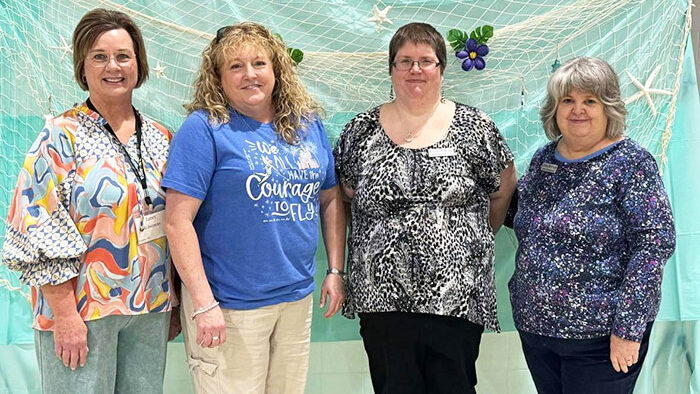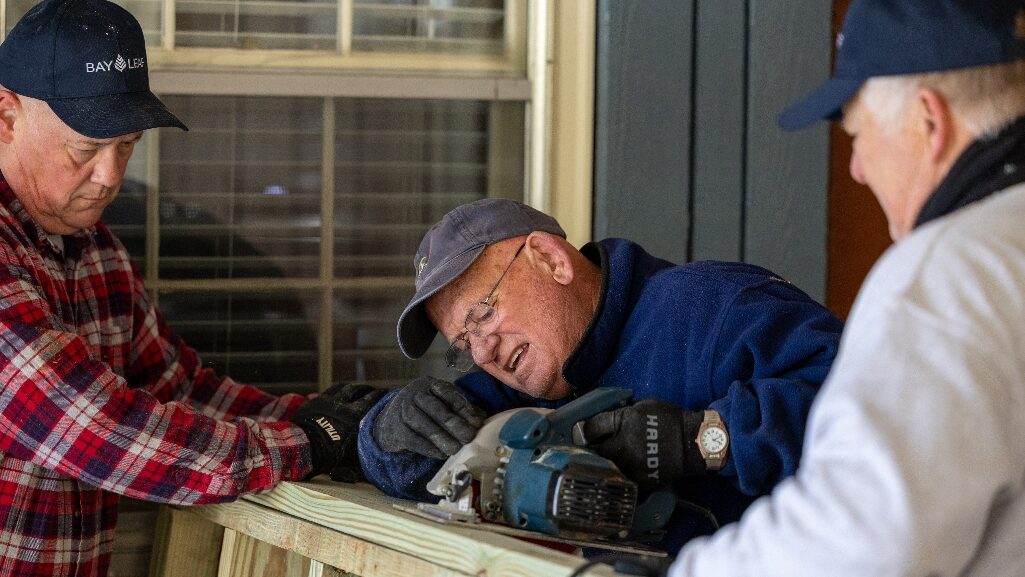Following last month’s release of plans for a database of “credibly accused” sexual abusers connected to Southern Baptist life, the SBC Abuse Reform Implementation Task Force released an interview March 1 with two leaders who will help the denomination in its effort to prevent sexual abuse and to care well for abuse survivors.
During the 30-minute interview, ARITF chairman Marshall Blalock spoke with Samantha Kilpatrick and Heather Evans about their work and how churches can become trauma-informed safe spaces for survivors. Kilpatrick leads Guidepost’s faith-based division and will oversee the Ministry Check database; Evans is currently working with the ARITF as an advisor.
Brokenhearted, spurred to act
Kilpatrick shared how she has spent her legal career walking alongside survivors. As a prosecutor, she worked with victims of domestic violence, sexual abuse and child abuse. As an attorney in private practice, she helped churches and other organizations establish policies to protect vulnerable people in their care.
Underlying her professional life, she said, is the commitment to Christ she made as a sixth grader at a Wednesday night youth service.
“God just really captured my heart at that point,” she told Blalock in the interview. Since then, she has looked for ways to honor God with her life and to integrate her faith into her work. She sensed God leading her to take seminary classes and eventually earned a master’s degree in counseling from Southeastern Baptist Theological Seminary. She also helped create the Caring Well curriculum for churches.
Kilpatrick worked with Guidepost Solutions on the initial investigation into the SBC Executive Committee’s response to abuse. In her new role of leading Guidepost’s faith-based division, she will oversee the Ministry Check database in an effort to provide churches with background information about potential staff and volunteers, with the goal of preventing would-be abusers from moving from church to church into new roles.
In Guidepost’s work with faith groups, the aim is to understand the polity and theological beliefs of the group they’re serving, and what implications those things may have on the work, she said.
“But across all of those faith-based arenas, what we’re looking for is we’re looking to prevent abuse,” she noted. “We’re looking to prevent harm, and we’re looking to train and help churches and leaders understand how to receive a report of abuse and to respond well.”
The stories she has heard throughout her work are “heart-wrenching,” Kilpatrick said, not only in Southern Baptist communities but from faith groups across the board.
“It breaks my heart. But it also kind of spurs me to action to try to push for change and reform, and really for people to just live out their mission, live out what God’s called them to do, to care for people that are in these spaces and that have been harmed,” she said.
Creating a trustworthy database
Messengers to the 2022 Southern Baptist Convention approved the creation of a database, and Kilpatrick acknowledged it is a challenging resource to establish.
“This is a big project, and it’s got a lot of facets to it,” Kilpatrick said, noting the standards and processes needed to ensure information is properly included on the site, as well as the need to protect survivors.
Ministry Check is a prevention effort and an accountability effort requiring significant attention, she said. Challenges include making the online database private, secure and useable for Southern Baptists.
Kilpatrick addressed the concern that untrue allegations of abuse could be reported on Ministry Check. They are designing a process to evaluate the facts of a report and to ensure it meets the standard of credibility to be entered in the database, she said.
“While I understand where the concern comes from, that’s what the process and framework is meant to take care of,” she said. “By having that process, it becomes a database that we can trust, that the information that’s there is valuable, it’s trustworthy, and it’s something that we can rely on.”
Defining ‘trauma-informed’
Heather Evans is a licensed clinical social worker who served on the first Sex Abuse Task Force assigned to review Southern Baptists’ response to abuse. She is currently working with the ARITF as an advisor, using her more than 20 years of experience working with survivors to help churches respond well to trauma.
Evans explained what it means to be “trauma-informed” using four measures determined by the National Substance Abuse and Mental Health Administration:
–Realizing trauma exists and affects people.
–Recognizing signs of trauma.
–Responding to trauma.
–Resisting re-traumatization.
“For an organization to become trauma-informed, it means every decision, every policy, hopefully every interaction is governed by this awareness of trauma, of how it impacts people and wanting to respond in such a way that it does not re-traumatize but it actually repairs the trauma,” Evans said.
First and foremost, she said, it means listening to survivors and providing safe spaces for them.
“If you’ve experienced trauma, it may hinder you from being able to receive God’s Word or being able to be a part of a Christian community,” she said.
“For us looking at being a mission-minded group of people,” she noted, “I would say being trauma-informed is absolutely essential so that we can remove those barriers and help people feel safe, help people feel heard rather silenced and isolated.”
More information about the ARITF is available at abusereformtaskforce.net.
To read more about the Ministry Check database, click here.








